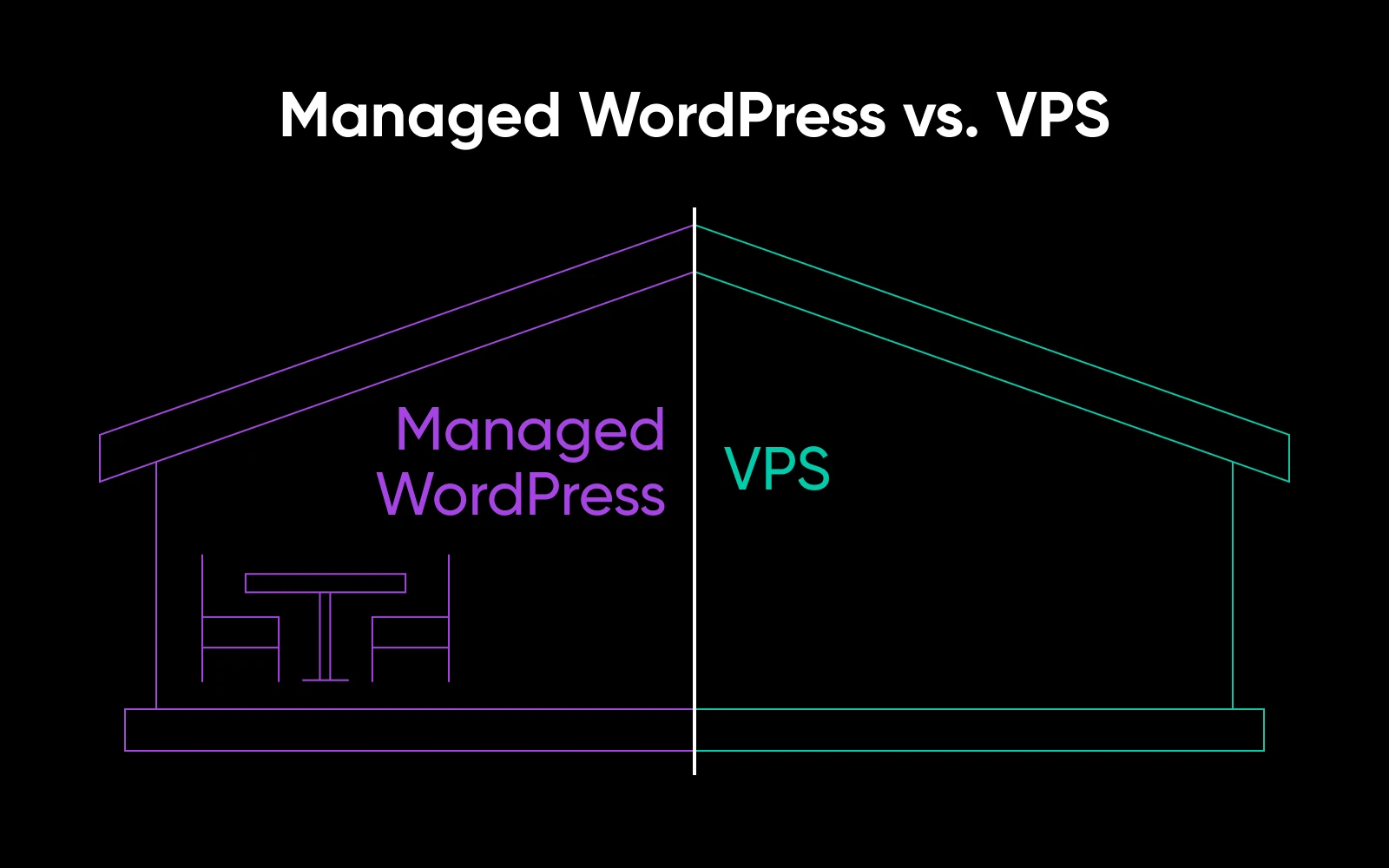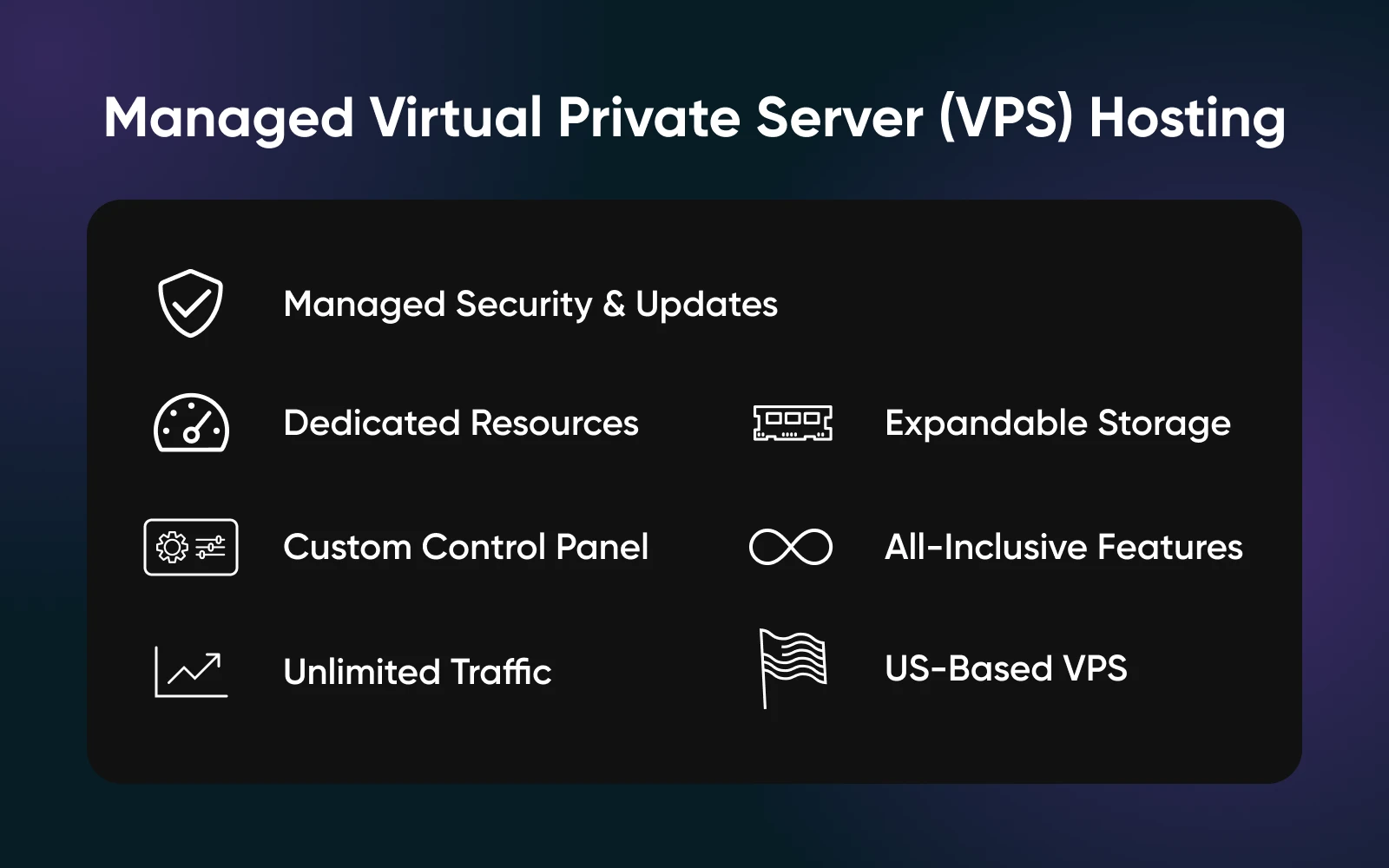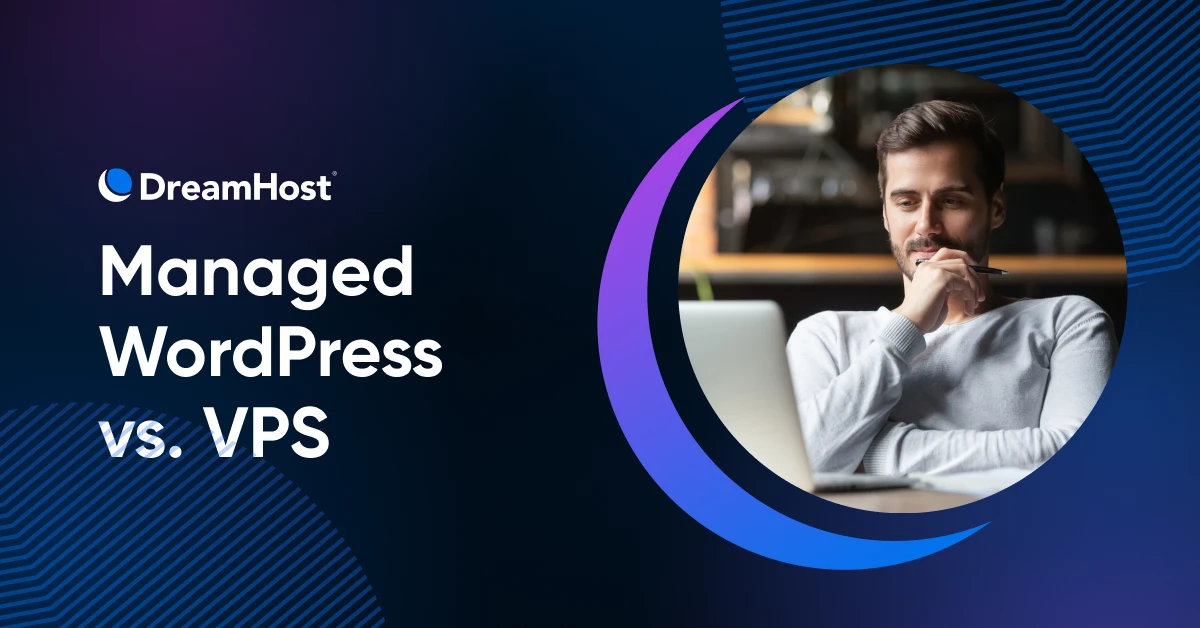[ad_1]
If your website is the face of your business online, then your hosting plan is like the foundation your customers walk on. A slow, unreliable site can frustrate visitors and hurt your business — whether they’re trying to browse, book a service, or buy a product. That’s why choosing between Virtual Private Server (VPS) and managed WordPress hosting is one of the most important considerations to make when creating your website.
Both options are popular for different types of entrepreneurs, small business owners, and website owners. And it’s often easier to choose once you know what each one offers. While both managed WordPress hosting and VPS hosting have pros and cons, they’re best suited for different website needs.

In this post, we’ll introduce you to VPS vs. managed WordPress hosting, break down the advantages and disadvantages of each, and help you decide which is best for your small business.
Let’s get started!
An Introduction to Managed WordPress Hosting
Managed WordPress hosting offers server space for your website, plus extra services designed to make managing a site easier. Along with server space, you get tools for security, site migration, maintenance, and performance optimization. It’s specifically built for WordPress websites, making it a great fit if you’re already using the platform.
For instance, at DreamHost, our managed WordPress hosting plans provide built-in caching for fast performance. We also include a free migration service and a staging area so you can test changes before making them live. What’s more? You’ll get a pre-installed SSL certificate, daily backups, and 24/7 expert support.
Because managed WordPress hosting comes with these extra services, it’s perfect for beginners or business owners who’d rather not spend time on technical maintenance.
It lets you focus on what really matters: growing your business.
Managed WordPress Hosting: Pros and Cons
Here are the main benefits and drawbacks when you choose managed WordPress hosting for your website:
| Pros of Managed WordPress Hosting | Cons of Managed WordPress Hosting |
| Simplicity: Managed hosting takes care of the technical side of running a site, like updates and backups, so you only have to worry about running your business.
Security: Your site is in the hands of trusted professionals. If something goes wrong, they’ll handle it fast. Plus, hosting companies often offer advanced security features like malware scanning and defense against cyberattacks keep your site safe. Scalability: Managed hosting providers can handle traffic spikes, so your site won’t crash during busy periods. WordPress-specific perks: Extra features like one-click installs, staging environments, and version control / choose-your-own backups make it easier to manage your WordPress site. Performance: Servers are optimized for WordPress, meaning your site will load faster. Support: Managed WordPress hosting often comes with WordPress-specific support teams. At DreamHost, we offer 24/7 support and a robust Knowledge Base, so help is always available when you need it. |
Less control: You hand over control of server settings to your host, which may not work for experienced users who want to configure everything themselves. Some plugins might also be restricted due to compatibility issues.
Limited use: Managed WordPress hosting is built for WordPress, so if you plan to use other platforms, it might not be the right choice. Plus, most plans only allow a certain number of sites, so hosting multiple websites can get expensive. Cost: Managed hosting includes many extra services, which can make it pricier than VPS hosting. However, with prices more competitive than ever, you’re essentially getting a dedicated support team as part of your hosting package. |
An Introduction to VPS Hosting
With VPS hosting, your website shares a server with other websites but has its own dedicated portion of that server. This gives you more control over resources, unlike shared hosting, where websites compete for server space.
VPS is like a middle ground between shared hosting and dedicated hosting. You don’t own the server, but you get a lot of the benefits, such as more control and better performance. It’s also more affordable than dedicated hosting.
However, VPS hosting requires more technical knowledge and time to manage. You’ll be responsible for maintaining your server and handling things like security and updates. In case you lack the time, resources, or technical expertise to do this yourself, you can also hire a web developer to help out with this side of things.
VPS Hosting: Pros and Cons
Here’s what makes VPS hosting a great option (and why it isn’t the right fit for some business owners):
| Pros of VPS Hosting | Cons of VPS Hosting |
| Control: You have full control over your server settings and configurations, so you can customize it exactly to your needs.
Flexibility: VPS hosting isn’t limited to WordPress. You can host any application or system you want. Freedom: There’s very little you can’t do with VPS hosting, as long as you have the technical knowledge to configure it — or the budget for a web developer to help out. Security: You can configure the security features exactly how you want them. Since your VPS server is separate from others, there’s less risk of cross-infection. |
Learning curve: VPS hosting can be difficult to manage if you’re not experienced with servers. You’ll need to know how to administer your server and maintain your website.
Resource-intensive: You’ll be in charge of tasks like security and maintenance, which can take up a lot more time and effort than other types of hosting. Responsibility: With VPS hosting, you’re responsible for managing everything yourself. If you’re not comfortable with that, it could be overwhelming. Cost: VPS hosting can be expensive, depending on the setup you choose. However, with managed VPS hosting, you can enjoy the benefits of VPS while offloading some of the maintenance to the professionals. |
While VPS hosting means greater freedom, as you can see, it also means greater responsibility. This is one of the reasons we offer managed VPS hosting.

Managed VPS hosting can address many of the main issues that come with unmanaged hosting. You can rent a VPS server while accessing many other useful services, making this a more manageable and beginner-friendly alternative.
Of course, you can still enjoy blazing performance by configuring your server resources. However, you can also benefit from one-click SSL installation, unlimited domains, and automatic software updates.
The result? The convenience of a managed hosting package combined with the freedom of a VPS.
VPS vs. Managed WordPress Hosting
Here’s a quick comparison between VPS and managed WordPress hosting:
| Managed WordPress Hosting | VPS Hosting | |
| Beginner-friendly | Yes | No |
| Requires more time | No | Yes |
| Ultimate freedom | No | Yes |
| Suitable for WordPress | Yes | Yes |
| Secure | Yes | Yes |
| Automated features | Yes | No |
If you have the technical skills and want complete control over your site, VPS hosting is a great choice. It’s highly flexible, though it requires more time and effort to manage.
For beginners or businesses short on time, managed WordPress hosting can be simpler. Besides getting extra features, your host takes care of the maintenance so you don’t have to.
Choose the Right Hosting Solution for Your Website
Choosing between VPS and managed WordPress hosting comes down to your specific needs. VPS hosting offers more control and flexibility, but it requires more technical know-how and time. Managed WordPress hosting, on the other hand, handles the technical side for you, making it ideal for beginners or small businesses without a dedicated tech team.
At DreamHost, we offer a range of solutions to suit all kinds of users, from managed WordPress hosting to managed VPS hosting. Whichever option you choose, you’ll enjoy 24/7 support, fast speeds, and unmetered bandwidth. Check out our plans to get started!
VPS Hosting
When You Expect Performance Get DreamHost VPS
Big or small, website or application – we have a VPS configuration for you.
See More
Did you enjoy this article?
[ad_2]










